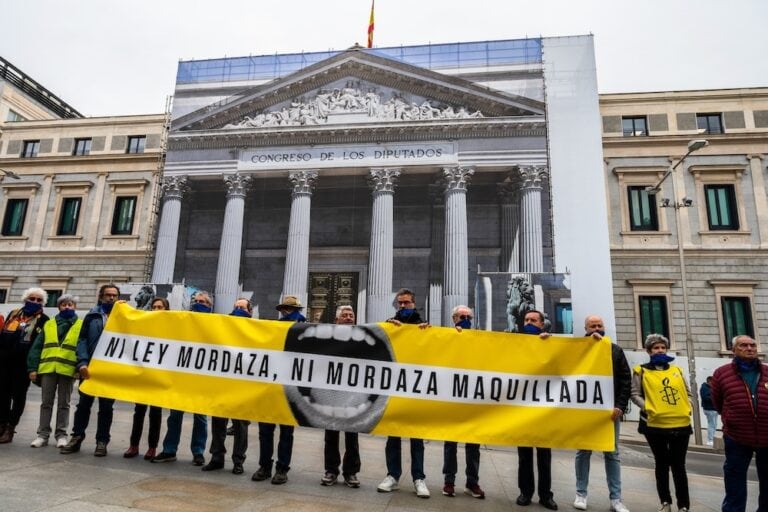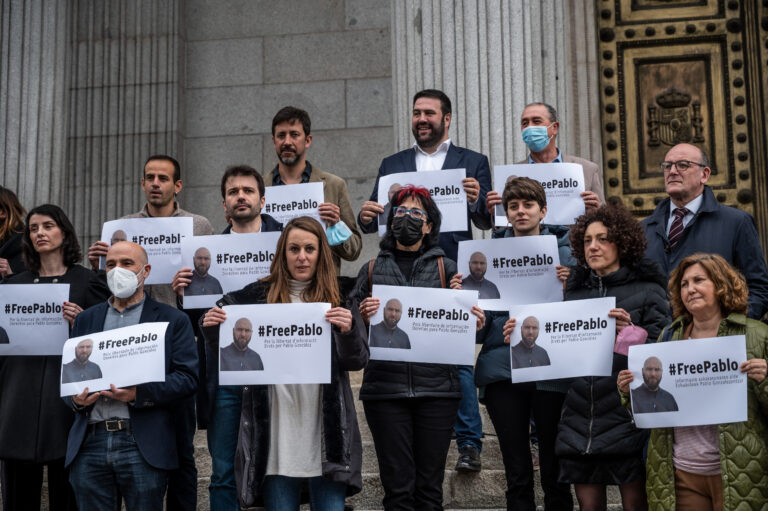(IPI/IFEX) – The following is an IPI letter to Catalan authorities: H.E. Pasqual Maragall i Mira President of the Generalitat Government of Catalonia Plaça de Sant Jaume, 4 08002 Barcelona Spain Fax: + 34 93 318 65 96 H.E. Ernest Benach i Pascual President Parliament of Catalonia Parc de la Ciutadella 08003 Barcelona Spain Fax: […]
(IPI/IFEX) – The following is an IPI letter to Catalan authorities:
H.E. Pasqual Maragall i Mira
President of the Generalitat
Government of Catalonia
Plaça de Sant Jaume, 4
08002 Barcelona
Spain
Fax: + 34 93 318 65 96
H.E. Ernest Benach i Pascual
President
Parliament of Catalonia
Parc de la Ciutadella
08003 Barcelona
Spain
Fax: + 34 93 304 65 46
Vienna, 4 January 2006
Your Excellencies,
The International Press Institute (IPI), the global network of editors, media executives and leading journalists, is deeply concerned about the 20 December 2005 decision of the regional Parliament of Catalonia to enact a new Broadcast Law enabling the already existing Broadcast Council (“Consell de l’Audiovisual de Catalunya”) to fine broadcast stations up to 300,000 EUR (approx. US$357,637) or to shut them down for transmitting “untruthful information.”
One day later, on 21 December, the Broadcast Council issued a report to the Catalan government stating that the Cope Radio network, owned by the Spanish Bishops’ Conference, had breached the Spanish Constitution by “exceeding the limits of freedom of speech” and requested that the Catalan government open proceedings against the network. Under the new law, this could lead to the revocation of the broadcaster’s licence.
Cope Radio is strongly critical of the policies of Spain’s Socialist government and has criticised initiatives to give the Autonomous Community of Catalonia a new, quasi-independent status. Nationalist parties in the ruling Catalan coalition have spearheaded efforts to ban the radio network in Catalonia. The Broadcast Council, a political body controlled by the ruling majority in Catalonia’s parliament, has apparently now been given punitive powers aimed at silencing critical voices.
In addition, we are informed that the new law gives the Council ample latitude to determine what is truthful and what is not. As the law’s preamble states, there is “a right of the citizens of Catalonia to have an audio-visual system that reflects its immediate reality from the standpoint of expressive forms that are tied to its array of traditions, to its symbolic environment.”
We understand a petition signed by more than 700,000 Spanish citizens, demanding an investigation into “the political operation . . . aimed at taking away from the second most listened-to radio network in Spain all its stations in Catalonia,” has been sent to the European Parliament, which will take the matter up in January 2006.
IPI believes that the Broadcast Council’s new, far-reaching censorship powers have no equivalent in Western Europe and that the creation of a political organ such as this one, bestowed with the ability to muzzle critical voices, represents a serious threat to everyone’s right to “seek, receive and impart information and ideas through any media and regardless of frontiers,” as contained in the United Nations Universal Declaration of Human Rights.
IPI views this development with the utmost gravity, since it marks a return to bygone eras of censorship and media repression that we thought would never reappear in democratic Spain. We therefore urge the responsible authorities to ensure that the Broadcast Council’s punitive powers are curtailed and to do everything in their power to end the campaign of harassment against Cope Radio.
We thank you for your attention.
Yours sincerely,
Johann P. Fritz
Director


